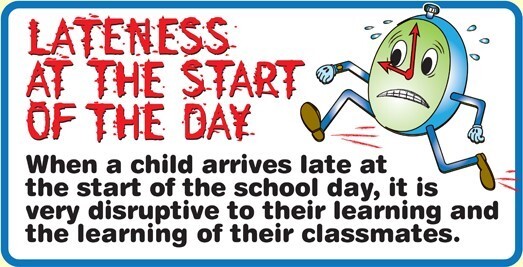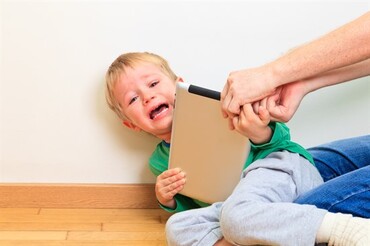Filter Content
Sunday’s feast Corpus Christi, Latin for ‘the Body of Christ’, focuses on the Eucharist as a symbol of unity. When we receive the body or blood of Christ we respond “Amen” - Yes, we believe that the Eucharist is the living presence of Jesus. Next time you receive the Eucharist, remember to be conscious of Christ’s presence in the host.
Eucharist
Year 4 students who are enrolled to take part in their first Eucharist this year will begin preparation soon. The proposed date for this celebration is Sunday, 20 September. Information notes, booklets and stoles will come home next week ready to start preparation. Please contact me if you have any concerns or questions about the preparation.
Years 5 / 6 Faith Formation Day
A note will come home this week about a faith formation day we are holding for Years 5 / 6 students. This day will be an opportunity to engage in prayer, reflection and other relevant learnings in Religious Education. The focus of this day is ‘Follow the whispers of your heart’ and we will do this through the exploration of the three Marys; Mary, Mother of Jesus, Mary Magdalene and Mary MacKillop. Each of these Marys are different but important and each of them teach us different things about ourselves.
A reminder to all families that school commences at 9.00am.
It is most important that children arrive at school on time. When children arrive late, they often miss vital instructions that set up the day and may find it difficult to 'slot into' the lesson. Late arrivals can also be very disruptive to other students.
The following students received an award in Week 3:
ACHIEVEMENT AWARDS
| Kinder Gold | Eddie M, Archie, Chloe |
| Kinder Blue | Eddie D, Fox, Adam |
| Year 1 | Zoe K, Xavier |
| Year 2 | Felicity, Chloe L, Anastasia, William |
| Year 3 | Hunter, Sophie K, Charlie |
| Year 3/4 | Patrick, Elsie, Hugo, Liam |
| Year 5 | Edward, Tom, Zalia |
| Year 6 | Ruby H, Mikail, Tamille |
WALK IN LOVE AND PEACE AWARDS
| Kinder Gold | Noah S |
| Kinder Blue | George B |
| Year 1 | Henry |
| Year 2 | Mateo |
| Year 3 | Mattes |
| Year 3/4 | Sophie D |
| Year 5 | Charlotte |
| Year 6 | Abigail |
LEADERSHIP AWARDS
| Principal's Award | Iggy |
(Excluding current Year 6 students)
If your child is leaving St Bede’s at the end of this year, would you please notify Julie or Breen as a matter of courtesy. This includes those who have applied for a place at Marist College, St Edmund’s College and CGS. Although we hate to see any of our families departing, our planning for 2021 will soon be under way so it's important we have this information as soon as possible.
DO YOU KNOW WHERE YOUR CHILD'S REPORTS ARE?
Would you please note your child’s reports and NAPLAN results are important documents and should be retained in a safe place to enable reference at a later date or if requested by, say, education or medical professionals. This especially applies to students applying for high school.
It should be rare to approach the Front Office for duplicate copies of documentation such as birth and baptismal certificates, school reports and NAPLAN results. We have had numerous requests recently to provide copies of documents which have already been provided.
Winter School Holiday Tennis Clinics at Red Hill Tennis Club, Astrolabe Street will be held from Monday, 6 July to Friday, 10 July.
8.00am - 1.00pm half day or 8.00am - 5.30pm full day
All standards Kindergarten to 17 years with full stroke development. Beginners will be serving overarm by the end of the clinic.
Free racquet hire, lunchtime activities, games and heaps of fun with prizes galore!
Contact Matt McDonald, Level 2 Tennis Coach, on 0412 565 137
The Holiday Happenings booklet for the upcoming school holidays will not be distributed in print form.
The booklet is now available digitally at
CONQUERING KIDS' TECHNO-TANTRUMS
by Dr Kristy Goodwin
Many of us have witnessed our kids or teens emotionally combust when asked to switch off their gaming console or put their phone away. I colloquially call these ‘techno-tantrums’. Many of us fret that this signals that they’re ‘addicted’ to technology and find ourselves worrying about why they behave in such intense ways.
So, what makes technology so psychologically appealing for kids and how can we help them to unplug so that screen-time doesn’t end in scream time?
Technology is so appealing
Technology has been intentionally designed to cater for our kids’ most basic psychological drivers. As humans, our three most basic psychological needs are the need for connection, competence and control.
Technology caters for these needs in very clever ways. For example, our need for relational connection explains why many of our boys are obsessed with multi-player video games and girls are infatuated with social media. These online tools have also been designed to help young people experience competency-gamers see tangible measures of their performance by their levels of attainment, or battles won. Scrolling through YouTube and ‘selecting’ which video they’ll watch next also enables young people to experience a sense of control and agency over their lives – something they biologically crave.
Here’s what technology does to their brains and bodies
Digital technology impacts on children and young people in the following ways:
‘It feels good’
When our kids use a screen it’s usually a pleasurable experience for them. Their brains secrete the neurotransmitter dopamine, which makes them feel good. This means, when you demand that they turn the device off, you’re terminating their production of dopamine (pleasure response). It’s better to provide a choice of more appealing transition activities when you want them to move away from a screen. For example, suggest that they ride their bike, or walk the dog after they’ve switched off the device.
‘I want more’
The online world has no stopping cues, so our kids and teen never feel ‘complete’ or ‘done’. They can always refresh social media; continue to play to attain another level in a game; or watch another YouTube clip. This is also referred to as the state of insufficiency.
One parenting tips that works is to give your children and teens hard end points. Rather than giving them a quantity of time (for example, you can watch an hour of TV today), give them the finish time (for example, I’d like you to switch off the TV at 4:30pm).
‘It’s so novel’
Our brains are wired to seek out new and interesting stimulus. The online world is always instantly gratifying, fast-paced and requires minimal cognitive effort. In comparison the offline, real world doesn’t always offer novelty. The real world is a lot slower-paced, and it’s not always instantly rewarding and interesting like our kids’ digital world.
Ensure your kids and teens have ample time to experience boredom. Our brains were never designed to be switched on and processing information as they are in the digital world. Opportunities for boredom allow the brain time to reset and help our kids become accustomed to not always being ‘switched on’.









